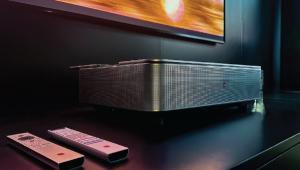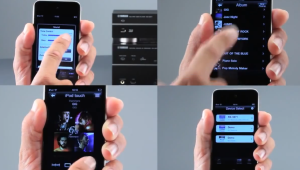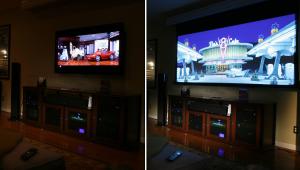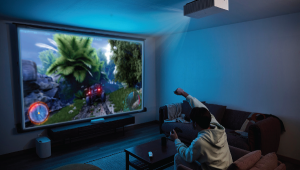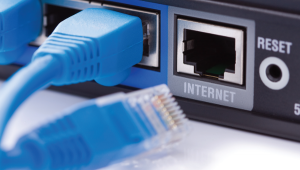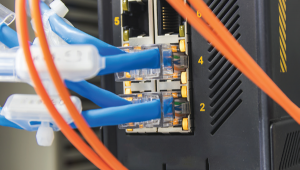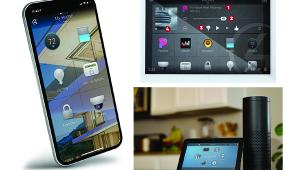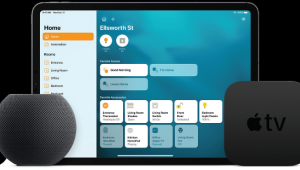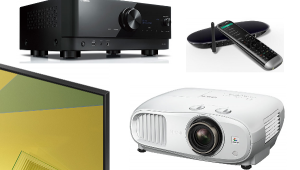Smart Power: Why Not Give Your Surge Protection a Brain?

When most people go shopping for a surge protector they focus on figures like clamping rate, response time, single pulse energy dissipation, voltage protection rating, number of outlets, and the warranty. And these are all important things—especially if that sad, sad day ever comes when your house is visited by The Big One; that dreaded bolt of lightning that picks out your home like the angry finger of God. But there are some real advantages that come from giving your surge protector an Ethernet connection and a big o’le steroid shot full of IQ points.
First off you can save some power which translates to both saving money and doing your part towards saving the planet by shutting off devices when not in use, thereby cutting down on the dreaded “vampire power.” Smart surge protectors can often use scheduling to turn off ports when you know they won’t be in use, say cutting power to the TV, Blu-ray, receiver, and DVR between 1 – 6 a.m. Obviously you’ll need to adjust this if your DVR is recording a round-the-clock #EverySimpsonsEver marathon or something, but for the most part you likely know when your devices don’t need to be on and the smart power center can kill power to them for you.
As an added bonus some smart power centers like those from Panamax, Furman, and SurgeX can include some pretty slick energy management and monitoring software. With this knowledge, these smart protectors can let you know how much power each device is consuming and how much that is costing you. That way if you are living on a tight budget you can tell your family that you literally can’t afford for them to watch the Kardashians.
Another great benefit of having a smart surge is being notified about any power related events in your system. My BlueBolt enabled Panamax surge will send me an email when if it loses power and then again when power is restored. My Pakedge P8 Intelligent Power Distribution Unit sends me a text when it loses and regains Internet access. These are great tools for troubleshooting gremlins and issues with your system.
Many smart power centers can bring themselves back online in a controlled manner, say powering up the modem first, waiting a minute, powering up the router, waiting a minute, then powering up the network switches, waiting a beat and then powering up the rest of the system. This will allow your system to come back online in the most successful manner possible, something especially important in larger systems or automation systems that rely on the network for control.
A smart power center will also let you remotely reboot an outlet. Say that your cable box locks up again. And you are at work. And your wife is trying to watch, I don’t know, Oprah or The View or something critical to the continued happiness and well-being of your home. And she turns on the TV and she gets…blackness. Now instead of just giving her a long, “I'm at work; what do you expect me to do?!?” sigh on the phone, you can whip out your smart phone—or jump on a computer—and just reboot the outlet that the cable box is connected and restore peace and order in your home like the technical super giant you are. Or you could just use it to torment your kids, powering down the system during their hundredth watching of Frozen. How you use your power is up to you.
Even cooler is when your power center becomes semi-self-aware and uses its Cyberdyne-lite skillz to automatically fix problems on its own! One of the most common devices needing rebooting is an Internet modem and router, and if these are connected to a smart power center and it senses that the network connection has been lost, it can automatically cycle those power outlets and reboot them. This will probably happen without you even being aware of it, leaving you and your family free to enjoy the high-speed Internets blissfully unaware.


